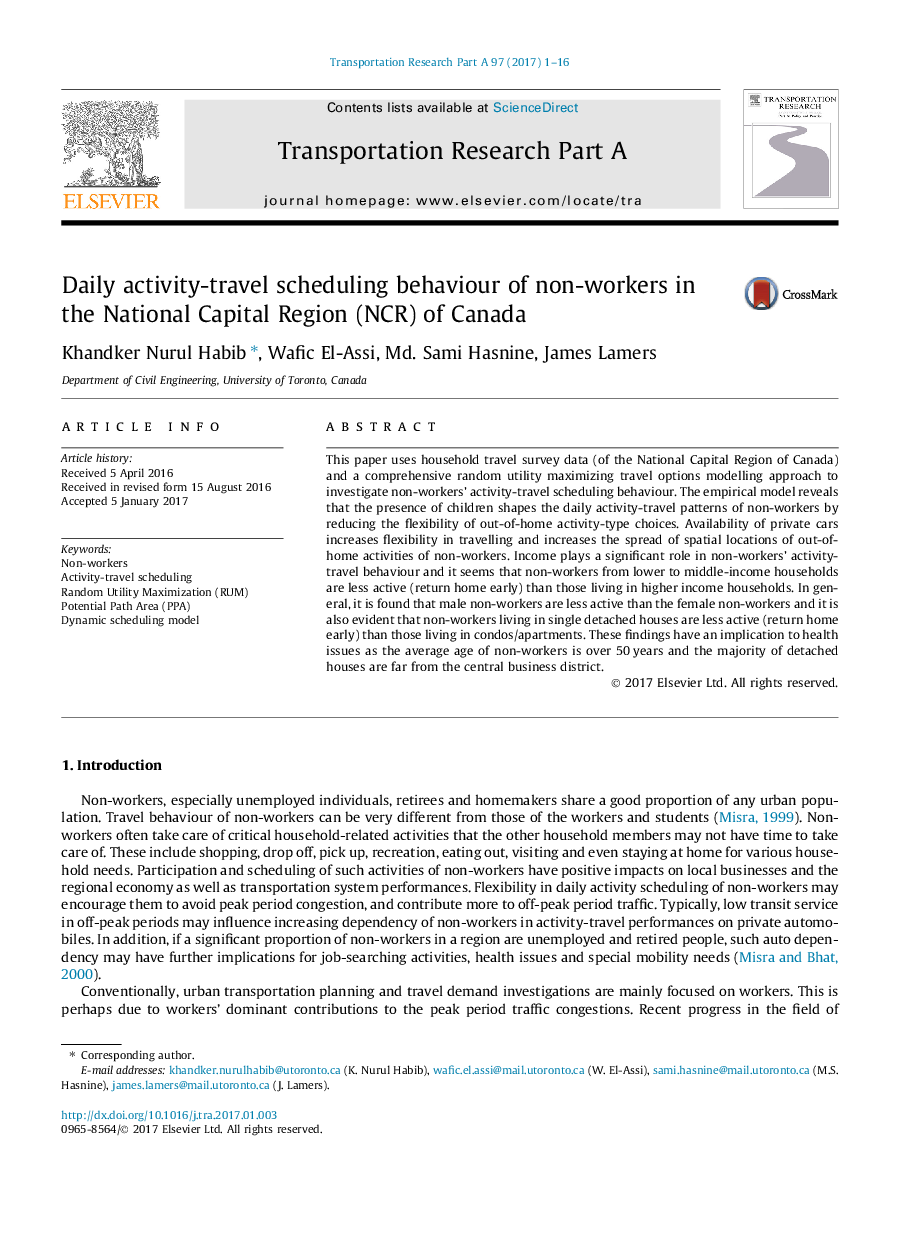| Article ID | Journal | Published Year | Pages | File Type |
|---|---|---|---|---|
| 4929153 | Transportation Research Part A: Policy and Practice | 2017 | 16 Pages |
Abstract
This paper uses household travel survey data (of the National Capital Region of Canada) and a comprehensive random utility maximizing travel options modelling approach to investigate non-workers' activity-travel scheduling behaviour. The empirical model reveals that the presence of children shapes the daily activity-travel patterns of non-workers by reducing the flexibility of out-of-home activity-type choices. Availability of private cars increases flexibility in travelling and increases the spread of spatial locations of out-of-home activities of non-workers. Income plays a significant role in non-workers' activity-travel behaviour and it seems that non-workers from lower to middle-income households are less active (return home early) than those living in higher income households. In general, it is found that male non-workers are less active than the female non-workers and it is also evident that non-workers living in single detached houses are less active (return home early) than those living in condos/apartments. These findings have an implication to health issues as the average age of non-workers is over 50Â years and the majority of detached houses are far from the central business district.
Keywords
Related Topics
Physical Sciences and Engineering
Engineering
Civil and Structural Engineering
Authors
Khandker Nurul Habib, Wafic El-Assi, Md. Sami Hasnine, James Lamers,
